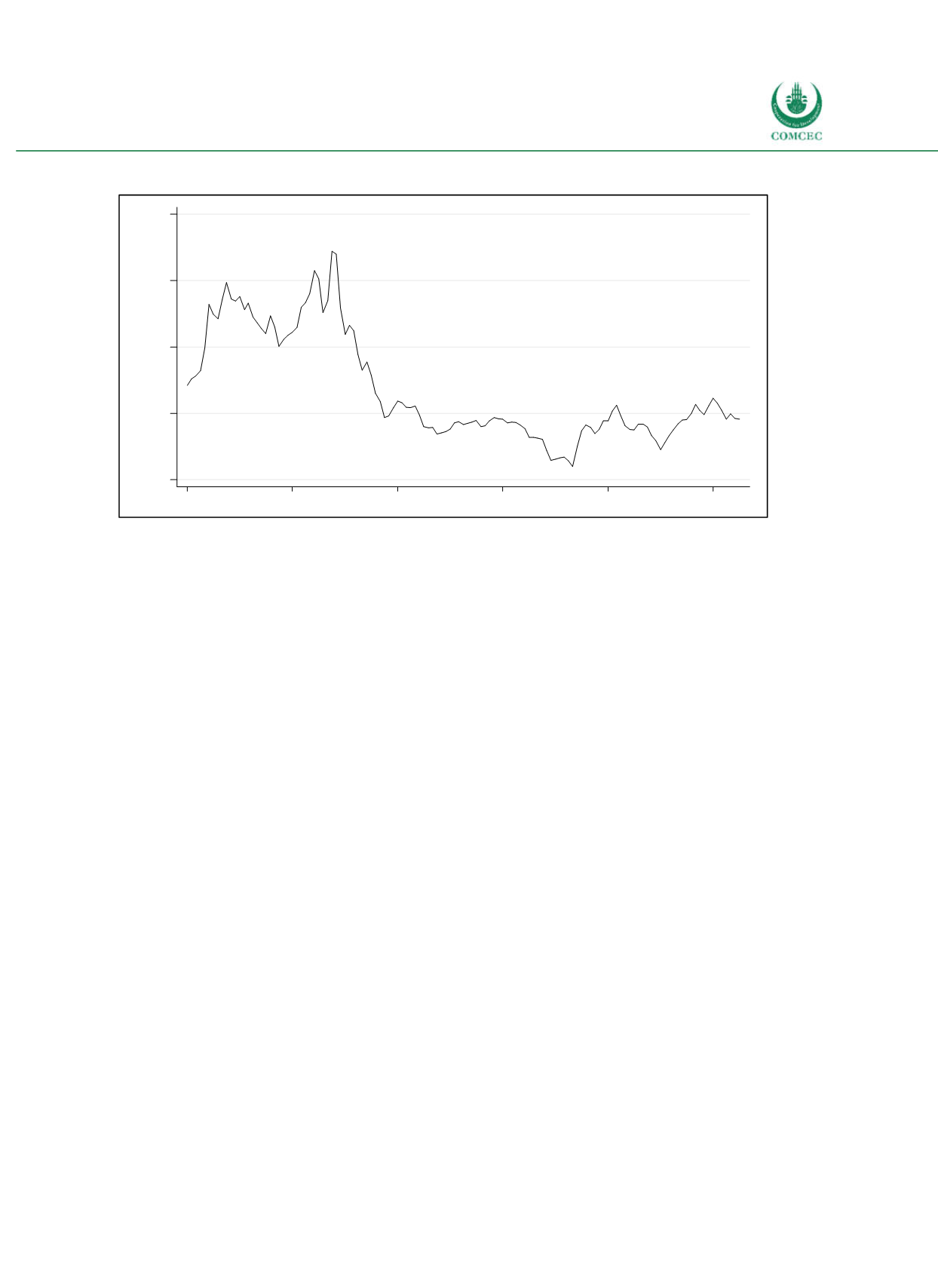

Improving Public Debt Management
In the OIC Member Countries
159
Figure 4-38: Turkey - 10-year Bonds Yields
Source: Eurostat (2017).
Changes in regulations dating back to 1983 allow the establishment of Islamic banks in Turkey
(Erol et al. 2014). Currently there are four Islamic banks operating in the Turkish banking
sector. Two Islamic banks, Albaraka Turk Participation Bank and Kuveyt Turk Participation
Bank are foreign owned. Bank Asya and Turkey Finance Participation Bank are privately
owned. In contrast to other OIC member states the regulation of the banking sector in Turkey
is based on Western type traditional banking systems as opposed to a regulatory framework
that is based on compliance with
shariah
. Since 1999, participation banks in Turkey are subject
to the same regulative rules as common commercial banks are. Regulations, such as a required
minimum stake in shortterm financial assets, which aim at sufficient liquidity provision,
present difficulties for Islamic banks (Erol et al. 2014). The confidence in Islamic banks in
Turkey was strengthened by the fact that none of them failed in the 2001 crisis, as opposed to
18 other banks. Typical characteristics of Islamic banks, namely that they are not (or only to a
certain extent) exposed to interest rate risks and exchange rate fluctuations, turned out to be
an advantage of Islamic banks over commercial banks (Erol et al., 2014). However, in
comparison to other OIC member countries the share of Shariacompliant deposits in total
commercial bank deposits is relatively small, accounting for only 6.6% in 2013 (Henry, 2016).
Concerning public bonds, the Public Finance and Debt Management Law (No. 4749; article
7/A) was amended in June 2012 allowing Turkey to issue
sukuk
, i.e. to issue government bonds
in line with Islamic law. Specifically, the law amendment allows the establishment of public
special purpose vehicles (SPVs), also called Asset Leasing Companies, which are fully owned by
the Undersecretariat of Treasury. Those Asset Leasing Companies are allowed to issue lease
certificates on domestic and international capital markets. According to Undersecretariat of
Treasury, starting with the first issuance in September 2012
sukuks
amounting to more than
TRY 20 billion were sold. The majority was denoted in domestic currency, a smaller part in U.S.
Dollar.
Domestic debt market
There is a functioning domestic market for public debt. The share of domestic in total central
government debt has decreased slightly in the last three years and amounted to 65% in 2015.
The absolute majority of Turkey’s domestic debt is held by residents, but their share of around
5.00
10.00
15.00
20.00
25.00
Yields on 10y Gov. Bonds (in %)
2006
2008
2010
2012
2014
2016
















